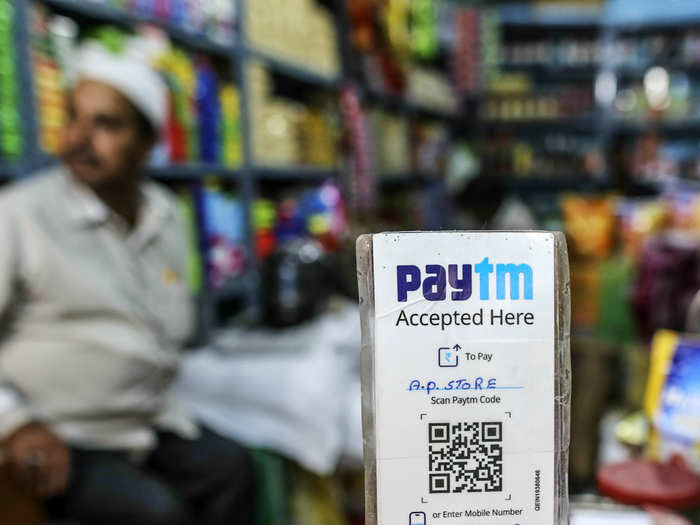Indian VCs are exciting about the future of fintech startups in India Pixahive
- One in every three dollars of early-stage startup investments between the first three months of 2021 in India went to new companies looking to make their way in the fintech space.
- LeapFinance, Zolve and CoinSwitch account for 69% of the $110 million that followed into these nascent companies in the first quarter.
- Venture capitalists are looking to get in on the ground floor of the new customers and new ideas that are burgeoning due to the digital push of the COVID-19 pandemic.
- Here is a quick list of the top five fintech ideas that investors are pouring their money into — and why.
Fintech startups are a fan favourite among investors looking for their money to make them more money. One in every three dollars of early-stage startup investments between the first three months of 2021 in India went to fintech.
Startups in the space attracted $110 million in the first three months of the year, according to Venture Intelligence. And, the lion’s share went to education finance startup LeapFinance, cryptocurrency trading platform CoinSwitch and neo banking startup Zolve. Together, they accounted for 69% of the total $110 million in investments.
New customers indulging in credit and millennials waking up to the stock market to capitalise on its recent volatility has made fintech the crowd favorite among venture capitalists. Two-year old startup, Leap Finance saw the largest early-stage investment between January to March 2021 of $17 million.
It’s not just an Indian phenomenon. “The business model at the heart of banking is broken and has lost matters the most — the customer,” Sebastian Siemiatowski, CEO of lending and US-based e-commerce platform Klarna, said in Business Insider’s latest
Global Trends Report.
These are the top five fintech ideas that are drawing the most amount of money:
No credit? No problem.
Business Insider
Not everyone needs a large ticket loan from the bank. And, many can’t go to the bank because they either have no, or at best limited, credit history.
Jai Kisan, a Indian startup trying to help farmers and others without documented credit scores secure loans, raised $30 million in its Series-A round of funding led by Mirae Asset. Existing investors include Blume, Arkam Ventures and Better Capital.
Other startups are trying to make the process more convenient with the ‘Buy Now Pay Later’ (BNPL) framework. While it is dependent on having tie-ups with banks and non-banking financial corporations (NBFCs), it has unlocked a new way of doling out unsecured credit, where you don’t have to put up collateral.
The only catch is that the interest rates are higher, which may not be ideal for the borrower, but good for the lender.
According to Credit Suisse, postpaid and ‘pay later’ offerings have a gross margin of 0.7% for a 15-day tenure. This means that every ₹1,000 rupees lent, yields a profit of ₹70. Assuming at least 100 million customers exercise their option, the bottom line expands to ₹7 crore.
Players like Simpl, LazyPay, Amazon Pay, Paytm and others have extended pre-approved credit lines worth ₹10,000 up to ₹1 lakh for over 200 million customers.
Capital Float alone, an eight-year-old startup that plays in the same BNPL arena, has crossed 2 million customers. The bulk of the Elevation Capital and Sequoia Capital-backed startup’s new customers were added in the first three months of 2021, according to a statement from the company.
The cryptocurrency gold rush
Wikipedia Commons
Cryptocurrency is the new kid on the block for investors who aren’t afraid of taking a little risk. The concept of digital currencies isn’t entirely new but investor interest has never been higher with Bitcoin, Ethereum and Dogecoin hitting new-records in 2021.
Even with the markets’ inherent volatility, cryptocurrency is akin to the gold rush. People are looking to make a quick buck even if there’s a threat of the bubble bursting or regulation coming in to ruin the party.
Billionaire investor, Mark Cuban who is also one of the ‘sharks’ on the business reality TV show Shark Tank, has invested in over 10 blockchain startups including CoinDesk. And, this year, he dipped his toe into the Indian startup world with the cryptocurrency startup Polygon. Polygon, which offers its own form of Bitcoin called Matic, has crossed a market cap of over $10 billion and is among the top 20 crypto coins globally.
Unlike Polygon, which has been around for four years, CoinSwitch Kuber is still in its infancy.
The cryptocurrency trading platform, backed by Ribbit Capital, Sequoia Capital India and others, raised $15 million in January during its Series-A round of funding — this is the second highest amount of funds raised by an early-stage startup between January to March, according to Venture Intelligence.
And, it only took CoinSwitch Kuber three months to hit its next milestone. It raised another $25 million in April with Tiger Global financing its Series-B funding round.
Stock broking startups are diversifying as millennials and Gen-Z are wake up to the stock market
Pixahive
Cryptocurrency may be the latest craze, but traditional stock markets are the old school way of investing money. And, the pandemic nudged millennials who were on the edge about trading into dipping their toe in the market with stock broking startups. “COVID-19 has awakened a new generation of retail investors who have discovered markets and invested in stock for the first time,” Yani Assia, the CEO of the Israeli social trading platform eToro, told Business Insider.
Players like Zerodha, Groww, Upstox and 5 Paise now corner 39.1% of the market share in active demat accounts — ten times the 3.1% in 2017, according to Credit Suisse report dated May 10.
Zerodha, founded in 2010 by brothers Nithin and Nikhil Kamath, is the largest of them all. It accounts for 19.1% of the market share and it more than doubled its profit in the last financial year to ₹1,000 crore. And, a lot of this was driven by an influx of customers during the pandemic months when the average age of new customers dropped from 32 years old to between 25 and 27 years old.
Zerodha, along with Upstox and Groww, are launching other services like direct mutual fund investing, digital gold investing, international investments, to better monetise their customers. Zerodha is even offering loans against shares.
Others, like Smallcase, are trying to make the process of investing more automated. They let investors pick up a basket or portfolio of stocks that reflect a certain theme in just one click. Those looking to park their money for the long term now don’t need to shortlist shares and configure which combination will get them the best returns.
Some may be skeptical, but nearly 2.5 million customers have already invested in such baskets with a monthly investment average of $150 million, according to Credit Suisse.
Insurance isn’t going to get left behind
Acko
As money markets go digital, insurance has no plans of missing the bus. Just this week, Indian health insurance startup Plum raised $15.6 million in its Series-A round of funding led by Tiger Global. The startup partners with small businesses to offer their employees health insurance.
Similar to how lending startups need to partner with banks and NBFCs to provide credit to customers, online insurance startups have to tie-up with insurers. Plum, for instance, maintains partnerships with ICICI Lombard, Care Health, Star Health and New India Assurance.
However, the business to business to customers (B2B2C) is only one operating model. Others like Acko Insurance are looking to go directly to the customer. By cutting the middleman out of the way, Acko can either pass on the savings to its customers or get a bigger cup of the profit.
Fintech startups are lining up to give NPCI some competition
Paytm
Digital payments startups is where some agree the birth of fintech took place. And, startups are partnering up with bigger companies to take their payments platforms to the next level with the creation of a New Umbrella Entity (NUE).
NUEs will be set up as competition to the National Payments Corporation of India (NPCI), which currently runs the United Payments Interface (UPI) and Rupay networks.
Paytm and Zeta Pay — both unicorns i.e. valued at over $1 billion — have partnered with Ola, IndusInd Bank, PolicyBazaar and Electronic Payments Services (EPS) to apply for a license with the Reserve Bank of India (RBI).
Zeta Pay’s unicorn status is relatively new. IT raised $250 million from SoftBank and Sodexo last month, in May, hitting a valuation of $1.4 billion. Paytm, on the other hand, has plans to go public later in this year. Sources told Business Standard that the Vijay Shekhar Sharma-led enterprise may try to raise $1.5 billion by issuing primary shares before diving into the market.
“There is a lot of potential for NUE, the minute we get the license,” R Srikanth, the president of corporate finance at Infibeam,
told Business Insider in an interview. The ecommerce company has also applied for a license with the RBI alongwith Reliance Industries, Google, Facebook and Yes Bank.





